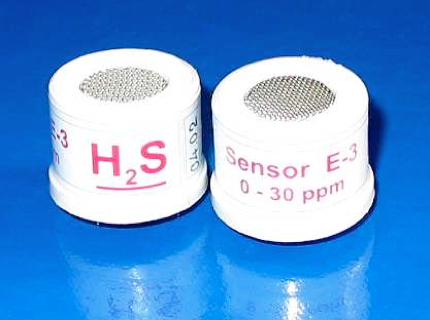Creation of the electrochemical gas sensor for determining hydrogen sulfide in the air and technological environments
Created an electrochemical gas sensor NTUU "KPI" for determining hydrogen sulfide, which endowed of high resolution and selectivity and can be use for manufacturing automation, quality control, safety, security and anticorrosive protection of the environment. Made a set of theoretical and experimental studies to determine the kinetic parameters of the redox reactions and mass transfer in electrochemical systems is based on solid and electrolyte matrix to enhance the selectivity and resolution and cost savings generated by sensors. Reasonably the expediency of electrochemical system based electrolyte matrix, which is focused on anodic oxidation of hydrogen sulfide. Defined the optimum catalytically active component of the working electrode - manganese oxide (IV) and the mechanism of catalytic activity. Designed gaseous diffusion electrodes based on valve metals and composite electrocatalysts of transition metal oxides to determine the level of hydrogen sulfide in the air daily average MPC residential area. The result is an electrochemical cell, which is selective to hydrogen sulfide, due to increased sensitivity of the indicator electrode, which is situate in amperometric sensor. Created the electrochemical gas sensor NTUU "KPI" for determining hydrogen sulfide enabled to make rapid analysis of underground utilities, identify sources of putrefactive gases during forensic expert report, to meet the need for reliable monitoring of gas analytical devices in gas production, transportation and consumption of natural gas and gas processing industries.

| Attachment | Size |
|---|---|
| 74 KB |




